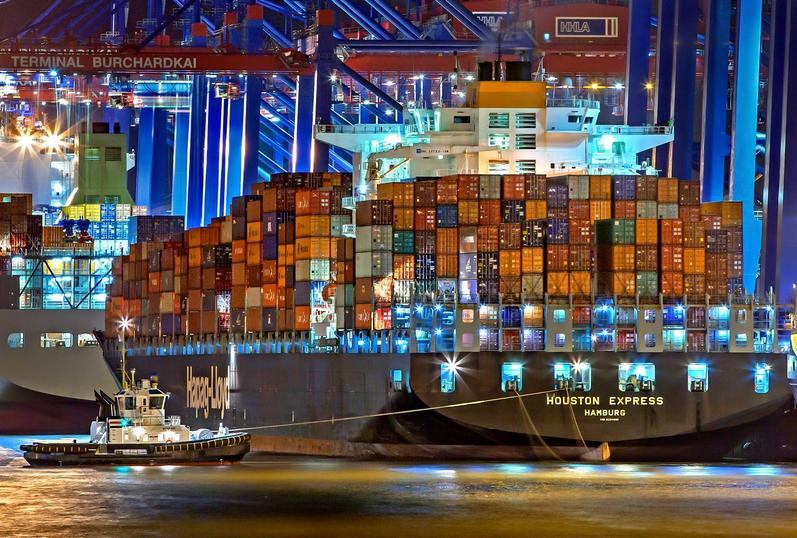
Seafreight Logistics Services play a crucial role in the global supply chain, facilitating the transportation of goods via ocean carriers. This mode of transportation is widely used for its cost-effectiveness, especially for large volumes of cargo. Seafreight logistics encompasses various services and products tailored to meet the diverse needs of businesses engaged in international trade. Below is a detailed overview of the key logistics services provided under seafreight, along with their individual components.
Container shipping is the primary method for transporting goods by sea. It involves loading cargo into standardized containers for safe and efficient transport.
Key Services:
Full Container Load (FCL): Transporting an entire container dedicated to a single shipment. This is ideal for large volumes of goods.
Less than Container Load (LCL): Consolidating shipments from multiple customers into a single container. This service is cost-effective for smaller shipments that do not fill an entire container.
Specialized Containers: Providing specialized containers, such as refrigerated (reefer) containers for temperature-sensitive products, open-top containers for oversized cargo, and flat-rack containers for heavy or bulky items.
Key Services:
Heavy Lift Services: Specialized equipment and handling techniques for transporting oversized cargo, such as industrial machinery or construction equipment.
Project Cargo: Coordinating the logistics for large-scale projects, including the transportation of multiple components, installation equipment, and specialized tools.
Custom Crating and Packaging: Designing and manufacturing custom crates or packaging to protect breakbulk cargo during transit.
RoRo shipping is used for transporting wheeled cargo, such as vehicles, trucks, and heavy equipment.
Key Services:
Vehicle Transport: Specialized services for transporting cars, trucks, and other vehicles by rolling them on and off the vessel.
Equipment Transport: Shipping construction and agricultural equipment that can be driven onto the vessel, simplifying loading and unloading
LCL consolidation involves grouping smaller shipments from various customers into a single container, maximizing space utilization and reducing costs.
Key Services:
Consolidation Centers: Utilizing strategic locations to consolidate cargo from multiple suppliers before shipping it to the final destination.
Inventory Management: Offering tracking and inventory management solutions for consolidated shipments, ensuring timely delivery and visibility throughout the supply chain.
Port services encompass a range of activities conducted at the port to facilitate the smooth handling and transfer of cargo.
Key Services:
Stevedoring: Loading and unloading cargo from vessels, ensuring the safe and efficient movement of goods.
Customs Clearance: Handling the documentation and procedures required for customs clearance, ensuring compliance with import and export regulations.
Storage Solutions: Providing warehousing and storage options for cargo at the port, including temporary storage for goods awaiting customs clearance or further transportation.
Freight forwarding is a comprehensive service that manages the logistics of shipping goods by sea, including coordinating transportation, documentation, and customs clearance.
Key Services:
Booking and Coordination: Coordinating the booking of cargo space with shipping lines, ensuring timely departures and arrivals.
Documentation Preparation: Preparing necessary shipping documents, including bills of lading, commercial invoices, and packing lists.
Customs Brokerage: Acting as a liaison with customs authorities to ensure compliance with regulations and facilitate smooth clearance of goods.
Insurance services protect cargo against potential risks during transit, providing peace of mind for shippers.
Key Services:
Marine Cargo Insurance: Offering policies to cover loss or damage to cargo during sea transportation, including coverage for theft, natural disasters, and accidents.
Claims Assistance: Providing support for filing claims in the event of loss or damage, ensuring a smooth resolution process.
Effective supply chain management ensures the seamless flow of goods from origin to destination, optimizing efficiency and reducing costs.
Key Services:
End-to-End Visibility: Implementing tracking systems that provide real-time updates on the status of shipments, enhancing transparency throughout the supply chain.
Vendor Management: Coordinating with suppliers, shipping lines, and other stakeholders to streamline processes and improve overall efficiency.
Logistics Consulting: Offering consulting services to help businesses optimize their supply chain strategies, including route planning, cost analysis, and process improvements.
These services enhance the overall shipping experience by providing additional support and flexibility.
Key Services:
Packing and Crating: Offering packing services to ensure that goods are securely packaged for transport, reducing the risk of damage during transit.
Distribution Services: Providing distribution and last-mile delivery solutions to ensure timely delivery to end customers.
Reverse Logistics: Managing the return of goods, including handling returns and processing them for resale or disposal.
With increasing focus on sustainability, logistics providers are implementing practices to minimize their environmental impact.
Key Services:
Eco-Friendly Practices: Implementing sustainable practices in shipping, such as optimizing routes to reduce fuel consumption and using eco-friendly packing materials.
Carbon Offset Programs: Offering programs to offset carbon emissions associated with shipping activities, helping businesses meet their sustainability goals.